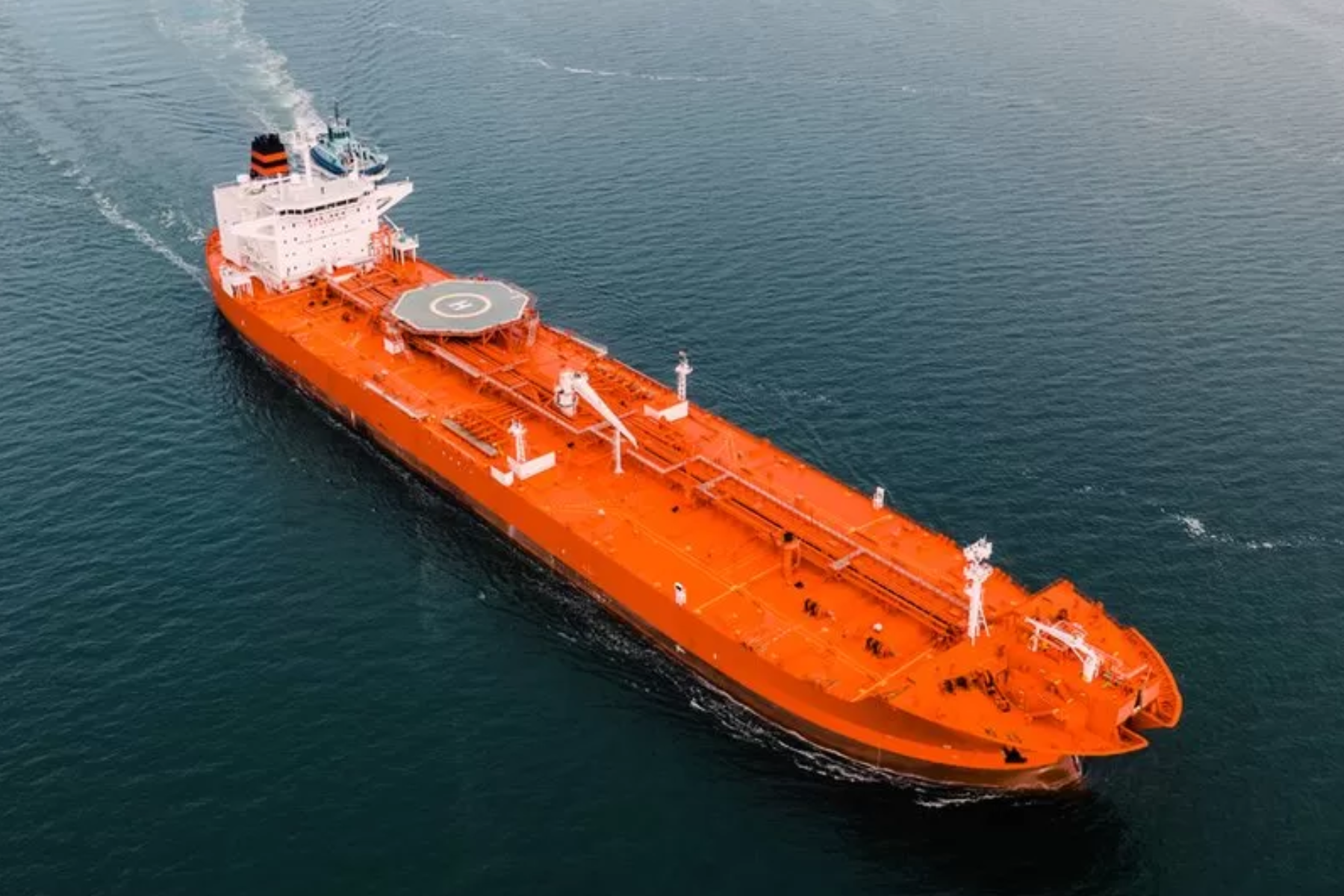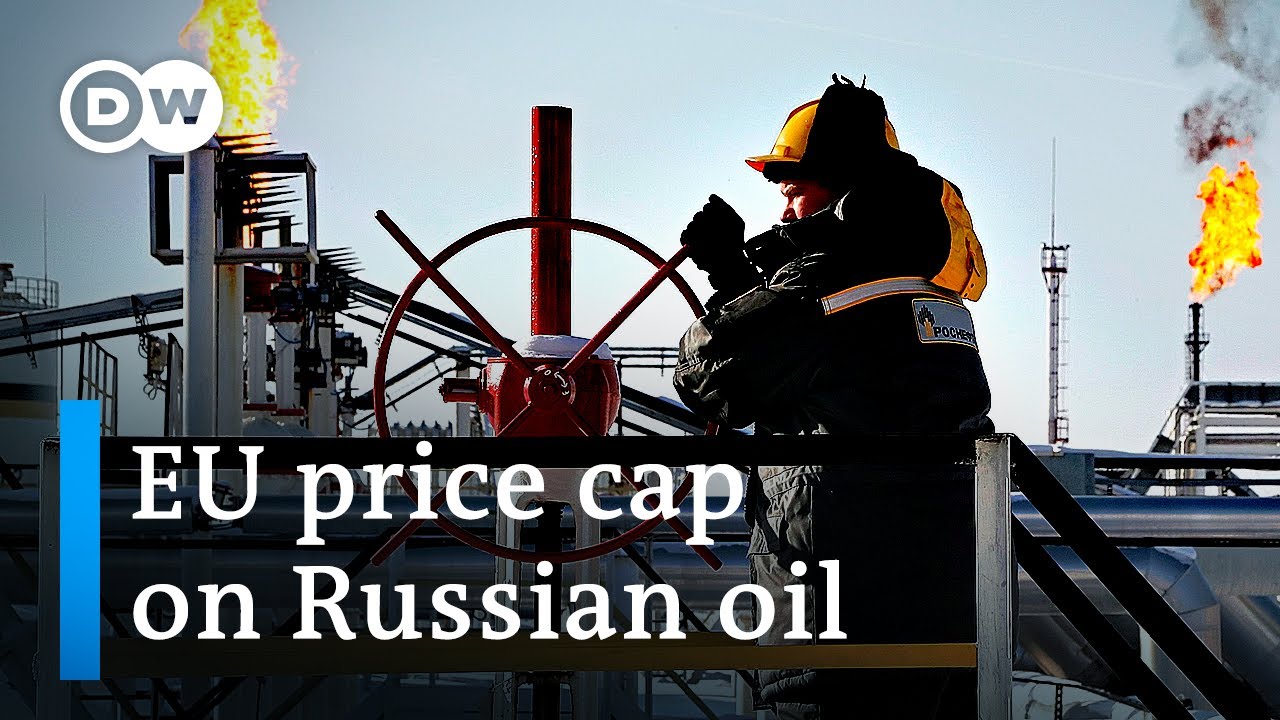Ukraine War - Oil Prices Rise As A Cap On Russian Crude Kicks In
The price of oil prices rise as a cap on Russian crude kicks in because investors are worried that a new limit that has been placed on the price of Russian crude will cause a disruption in global supplies in the coming months.
Author:Suleman ShahReviewer:Han JuDec 06, 202221 Shares929 Views

The oil prices rise as a cap on Russian crudekicks in because investors are worried that a new limit that has been placed on the price of Russian crude will cause a disruption in global supplies in the coming months.
The decision made by major oil-producing countries to continue reducing the amount of oil they produce in order to maintain the current price level has also contributed to the rise in prices.
Banned Shipments Of Crude Oil From Russia
According to WSJ, the European Union and the U.K. banned shipments of crude oil from Russia. This was a turning point for a continent trying to stop relying on Russia's fossil fuels after Moscow invaded Ukraine and turned natural gas supplies into weapons.
On Monday, the price of a barrel of Brent crude oil increased by about 2%, reaching $87.25 per unit.
Nevertheless, this is still a significant drop from the highs that were reached after Russia invaded Ukraine.
The cost of living in the United Kingdom is currently increasing at its most rapid rate in the last 41 years. This is largely due to the fact that higher oil prices tend to drive up the price of gasoline.
Price Cap
In order to "prevent Russia from benefitting from its campaign of aggressionagainst Ukraine," the Group of Seven (G7), which is comprised of the world's seven largest economies, put a ceiling on the price of Russian oil on Monday, setting it at $60 per barrel.

EU agrees on Russian oil price cap: Will it make a difference? | DW News
It will prevent any Russian crude that is sold for more than that amount from being transported using tankers from the G7 and EU, as well as financial institutions and insurance firms.
The G7 nations are home to a significant number of the world's most important shipping and insurance corporations.
Russia, which is the world's second-largest producer of crude oil, has stated that it will not accept the price cap and threatened to cease supplying oil to nations who adopt the measures. Russia is the world's second-largest producer of crude oil.
During an interview on the BBC's Today show, Jorge Leon, senior vice president at the Norwegian energy consultant Rystad Energy, speculated that this may lead to a rise in the price of oil.
He stated that Russia has been very explicit that they will not sell crude oil to anyone who signs up for the price cap. "Russia has been quite clear that they will not sell crude oil to anybody," he said.
It is therefore likely that we will have some disruptions in the months ahead, and as a result, it is likely that the price of oil will begin to increase once more in the weeks ahead.
In the meantime, on Sunday, the group of major oil-producing countries that goes by the name Opec+ announced that it will continue to adhere to its strategy of cutting output in order to support prices on the global market.
Opec+ is comprised of 23 oil-exporting nations, one of which is Russia. These nations get together on a monthly basis to decide how much crude oil to put up for sale on the global market.
As a result of Russia's invasion of Ukraine, worldwide oil prices skyrocketed to more than $120 a barrel due to concerns about a deficit in global supply from Russia. This caused a spike in demand for oil around the world.
Since then, however, they have experienced a precipitous decline due to the slowdown in the world economy and the reduction in oil consumption by countries.
According to a statement made by Kang Wu of S&P Global Commodity Insights to the BBC, "this decision by Opec+ to keep the quota where it is... is by itself an implicit form of support to the oil market."
According to the analysts, the relaxing of Covid limits in some Chinese cities, which could lead to an increase in demand for oil, was another factor that contributed to the rise in oil prices.
After widespread demonstrations against the government of China's zero-corruption policy, more cities in China, notably Urumqi in the northwestern region, have announced that they will relax their stringent lockdown laws.
According to Zelensky of Ukraine, the Russian oil cap is "weak."
A price ceiling has been agreed upon for Russian oil by the G7 and its allies.
On top of an EU embargo on imports of Russian crude oil by sea, similar pledges have been made by the United States, Canada, Japan, and the United Kingdom. The cap on the price of Russian oil has been set at $60 per barrel.
On the other hand, this past weekend, the President of Ukraine, Volodymyr Zelensky, referred to the cap as "a weak position" that was not "serious" enough to damage the economy of Russia.
Dmitry Peskov, a spokesman for the Kremlin, stated on Monday that Russia will respond to the most recent measures, adding that these measures will not stop Russia's military campaign in Ukraine.
Peskov told the reporters:
“„Russia and the Russian economy have the required capacity to fully meet the needs and requirements of the special military operation.- Peskov
Even though Russia will almost certainly feel the effects of the measures, the blow will be partially mitigated by the country's decision to sell its oil to other markets such as India and China, which are currently the countries that purchase the most crude oil from Russia on an individual basis.

Suleman Shah
Author
Suleman Shah is a researcher and freelance writer. As a researcher, he has worked with MNS University of Agriculture, Multan (Pakistan) and Texas A & M University (USA). He regularly writes science articles and blogs for science news website immersse.com and open access publishers OA Publishing London and Scientific Times. He loves to keep himself updated on scientific developments and convert these developments into everyday language to update the readers about the developments in the scientific era. His primary research focus is Plant sciences, and he contributed to this field by publishing his research in scientific journals and presenting his work at many Conferences.
Shah graduated from the University of Agriculture Faisalabad (Pakistan) and started his professional carrier with Jaffer Agro Services and later with the Agriculture Department of the Government of Pakistan. His research interest compelled and attracted him to proceed with his carrier in Plant sciences research. So, he started his Ph.D. in Soil Science at MNS University of Agriculture Multan (Pakistan). Later, he started working as a visiting scholar with Texas A&M University (USA).
Shah’s experience with big Open Excess publishers like Springers, Frontiers, MDPI, etc., testified to his belief in Open Access as a barrier-removing mechanism between researchers and the readers of their research. Shah believes that Open Access is revolutionizing the publication process and benefitting research in all fields.

Han Ju
Reviewer
Hello! I'm Han Ju, the heart behind World Wide Journals. My life is a unique tapestry woven from the threads of news, spirituality, and science, enriched by melodies from my guitar. Raised amidst tales of the ancient and the arcane, I developed a keen eye for the stories that truly matter. Through my work, I seek to bridge the seen with the unseen, marrying the rigor of science with the depth of spirituality.
Each article at World Wide Journals is a piece of this ongoing quest, blending analysis with personal reflection. Whether exploring quantum frontiers or strumming chords under the stars, my aim is to inspire and provoke thought, inviting you into a world where every discovery is a note in the grand symphony of existence.
Welcome aboard this journey of insight and exploration, where curiosity leads and music guides.
Latest Articles
Popular Articles
